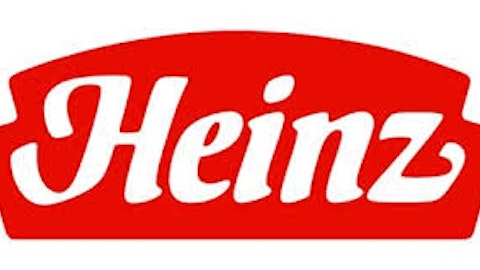With strong unit growth in Africa, Eurasia, and Latin America, Coke is positioned for continued success for generations. It offers a portfolio of 500 beverages, uniquely targeting the taste buds of consumers in more than 100 countries with drinks they love. Coke is challenged with flat sales of its flagship brand in developed markets like the United States, though sales of Powerade and Minute Maid are growing 9% annually. With a pristine balance sheet, strong free cash flow generation, and a large cash hoard, Coke can commit $3 billion per year to stock buybacks on top of its dividend payout. For Berkshire, Coke continues to be a one-decision stock. And that buy decision was made years ago.
Berkshire’s other mega holding is Wells Fargo & Company (NYSE:WFC). What’s noteworthy to Buffett wannabees and copycats is that Buffett continues to buy more WFC stock each year, with 13-Ds nearly every quarter pointing to new additional purchases. Wells Fargo has stood the test of time, emerging from the banking crisis in better shape than perhaps any large bank. While other banks continue to struggle to earn meaningful profits in an unfavorable rate environment, Wells earned $3.36 last year: solid 19% growth. Thats $18 billion in profits. Importantly, Wells’ Tier 1 common equity is $109 billion–a Tier 1 capital ratio of 11.75%. This solid position will allow Wells Fargo to aggressively pursue profitable growth at the expense of competitors forced to continue de-leveraging to comply with stricter global capital standards. At 10 times earnings and sporting a 2.9% dividend, its no wonder Buffett keeps buying WFC. What happens to earnings when the housing market fully recovers and/or we return to something resembling a normal yield curve? That will only further boost earnings, which are growing solidly already. Probably most appealing to Buffett: Wells Fargo, like Coke, has the pedigree of a 1 decision stock–a company successfully doing business since 1852.
Berkshire’s stock holdings and operating companies are firing on all cylinders, and Buffett believes they’re under-appreciated by the market. Thats why he stands by his offer to buy back Berkshire shares directly in the stock market at 1.2 times Book Value, a price he believes may be taking advantage of selling shareholders. At quarter end that is about $89.35 per share, and that is using Quarter/Year end 2012 book value calculations.
Book value has soared so far this year, with contributions from growing operating subsidiaries and, obviously, a strong 2012 stock market–boosting the contributions from stock holdings as they contribute to book value. So we may learn soon after the quarter’s end that the buy back is in the mid $90’s per share. Its a nice risk/reward proposition when Warren Buffett promises to buy back your stock if it declines just a little, while you maintain the same upside that Warren Buffett owns on the upside.
The Heinz deal, though, is the latest chapter in a string of positive moves by Berkshire. The 9% preferred shares aspect of the investment makes this an unusually attractive deal for Buffett at a time when I did not think this kind of deal could be done. I thought he’d have to wait until the next era of “tough times” like 2008/2009. And Buffett says his elephant gun is still loaded: he told CNBC he has the cash to do another very big deal. His preference is to leave $20 billion in cash on the balance sheet.
The article Grand Slam Even By Buffett Standards originally appeared on Fool.com and is written by John Mooney.
Copyright © 1995 – 2013 The Motley Fool, LLC. All rights reserved. The Motley Fool has a disclosure policy.




